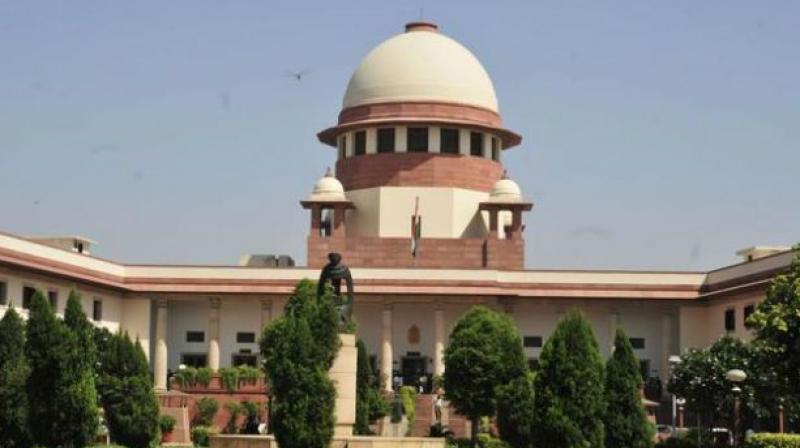Supreme Court takes up plea on Hindutva ruling
Can a person belonging to one community seek votes from members of his community for a candidate belonging to another community? SC asks.

New Delhi: Hearing began on Tuesday before a seven-judge bench of the Supreme Court to consider whether seeking of votes in the name of religion will amount to a corrupt practice under the Representation of the People Act warranting disqualification.
A seven-judge bench comprising the Chief Justice T.S. Thakur and Justices Madan B. Lokur, S.A. Bobde, A.K. Goel, Uday Lalit, D.Y. Chandrachud and L. Nageswara Rao, took up for hearng appeals seeking reconsideration of former CJI J.S. Verma’s verdict of December 1995 ‘Hindutva’ judgment that seeking votes in the name of religion is not a corrupt practice to set aside an election.
At the outset Chief Justice Thakur posed a series of questions to senior counsel Arvin P. Datar, for one of the appellants Abhiram Singh, who was aggrieved that his appeal against a Bombay High Court verdict setting aside his election was still pending adjudication for nearly two decades.
The broad issues to be considered by the Bench are: Will the act of a candidate belonging to a particular community going around the constituency with a predominant population of his/her own community seek votes in the name of his community amounts to corrupt practice? Can a person belonging to one community seek votes from members of his community for a candidate belonging to another community?
For instance a Hindu candidate, may use a Muslim supporter or agent to solicit votes of Muslim community for the Hindu candidates by hinting that they would invite “divine displeasure” if they do not vote for a particular candidate.
Vice versa, Muslim candidate may use a Hindu supporter to garner votes of Hindu community by playing the religious card. Will a candidate be held liable for corrupt practice if he even uses the inflammatory speeches of a religious leader to further his own electoral practices?

